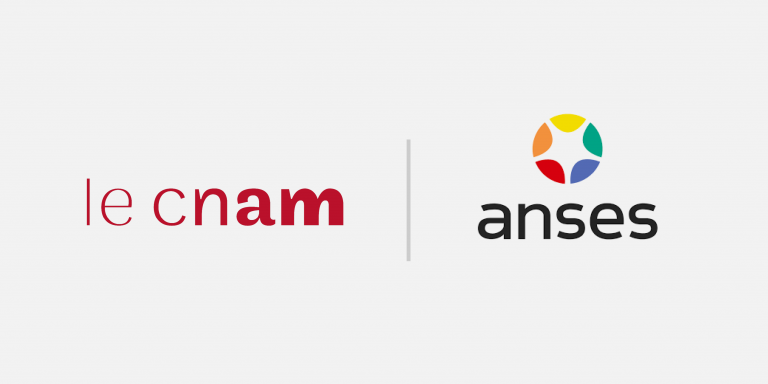
On February 28, during the International Agricultural Show, Olivier Faron, General Administrator of the Conservatoire National des Arts et Métiers (CNAM) and Roger Genet, Director General of Anses signed a framework agreement for the creation of the contract unit (USC) “Metabiot: Use of massive data to improve food safety”. The work of the USC will focus on the study of diseases that can be transmitted between animals and humans, in particular bacteria that pose a risk to human health, throughout the production chain in livestock and in the agri-food industry.
The CNAM is a major institution of higher education and research. Its agri-food chair aims to develop and implement a higher education program for the initial and continuing education of staff in the agri-food industry. These developments are based in particular on the design and implementation of research actions to collect and analyze massive data in the agri-food field, particularly for the poultry and pork industries, but also in plant production, for both animal and human consumption.
The food safety research of the Anses laboratory teams in Ploufragan-Plouzané-Niort focuses mainly on zoonotic bacteria in the poultry, pig and ruminant sectors. The Hygiene and Quality of Poultry and Pig Products (HQPAP) unit of this laboratory conducts research activities on the following theme: “the control of zoonotic bacterial agents transmitted through the food chain by a multidisciplinary approach in the poultry and pig sectors”.
METABIOT, a joint Cnam-Anses research project
The USC Metabiot will bring together the Hygiene and Quality of Poultry and Pig Products (HQPAP) unit of the Anses laboratory and the Agri-Food Chair of the Conservatoire National des Arts et Métiers, both based in Ploufragan, in the Côtes-d’Armor region. The research, scheduled to last three years and renewable, is supported by the Brittany Region, the Côtes-d’Armor department and the Saint-Brieuc agglomeration. The analysis of massive data will allow this research unit to apprehend :
- the role of complex microbial ecosystems on host metabolism,
- the role of surface microbiota in agro-industry, in the modulation of circulations of bacteria of zoonotic character.
Study of zoonoses from “fork to fork.”
The joint research team will study the interactions between bacteria at risk for human health and their host, all along the food production chain. The objective is twofold:
- optimize animal feeding in order to limit the presence of bacteria transmissible to humans in their digestive system;
- to better understand the interactions between the microbiota present in products such as meat, and that of the surfaces of agro-industrial environments in order to determine their roles in the circulation of pathogenic bacteria.
The research conducted aims to promote a reduction in the use of drugs and biocides in animal and agri-food production. It will also contribute to reflections on the improvement of animal feed and on a better use of massive data in the agri-food sector.
Translated from Metabiot : l’Intelligence Artificielle pour une meilleure alimentation









